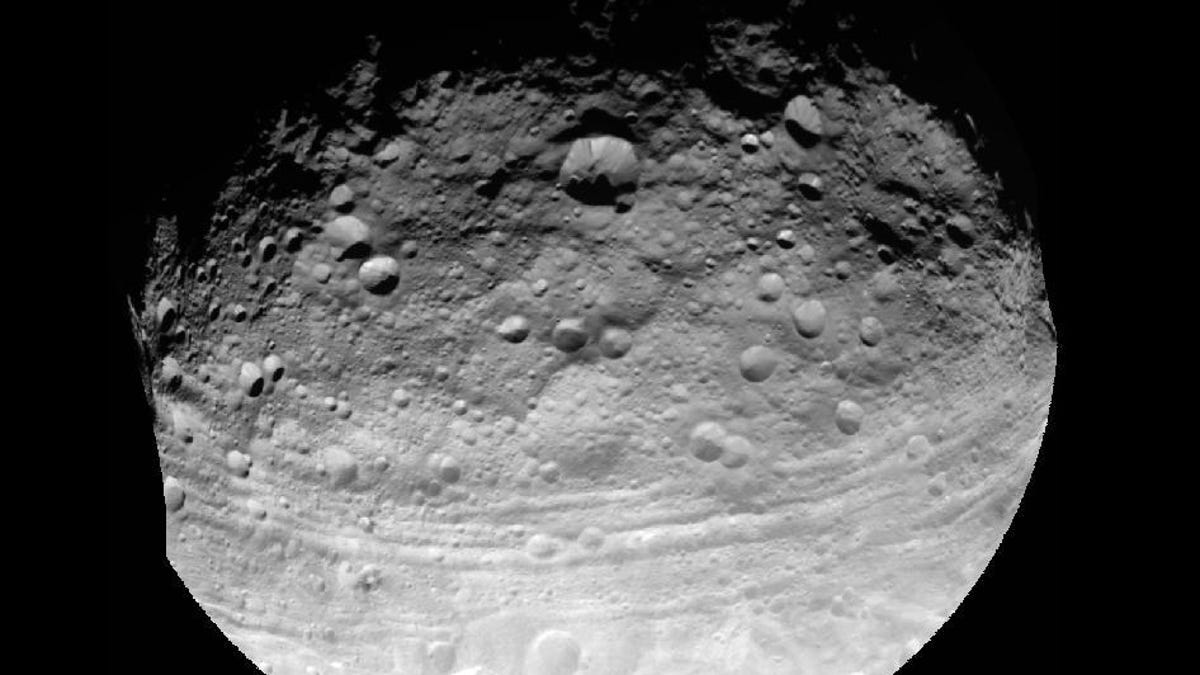Surprise asteroid whizzed by Earth today, and we didn't even blink
A little warning would have been nice.

NASA's Dawn spacecraft captured this view of the giant asteroid Vesta in 2011. Don't worry, asteroid OK 2019 is not this big.
The Earth just experienced the equivalent of strolling down the street and minding your own business when suddenly a baseball whistles by your ear. That baseball was asteroid 2019 OK, a previously undetected rock that zoomed by a little close for comfort Thursday.
First thing to note is the asteroid didn't actually hit us. It passed by safely. The rock is estimated to be somewhere between 56 feet (17 meters) and 128 feet (39 meters) in diameter.
The fast-moving object was confirmed by the asteroid-hunting Sonear survey in Brazil just a day ago. "The lack of warning shows how quickly potentially dangerous asteroids can sneak up on us," astronomer Michael Brown of Monash University wrote in The Conversation.
The All-Sky Automated Survey for SuperNovae (ASAS-SN) project run by Ohio State University scans the sky for interesting happenings. ASAS-SN tweeted a look at the asteroid's trajectory, which came within 0.19 lunar distance of Earth. Lunar distance is the moon's average distance to Earth. If you come within 1 lunar distance, you're cosmically fairly close to our planet.
This is the video of the close encounter of Asteroid 2019 OK we have been Twitting all day with the Earth: https://t.co/bjT7uhQJuO pic.twitter.com/3e4UyPcdPl
— ASAS-SN (@SuperASASSN) July 25, 2019
It's quite delightful that this sneaky asteroid didn't meet Earth directly. ASAS-SN tweeted that an asteroid of this size "would make quite a mess if it did collide: ~1 km crater, several megatons TNT equivalent at impact."
Asteroid 2019 OK is the "largest that has passed closest to Earth this year," Sonear reported on Facebook, also noting that it zoomed by just 46,000 miles (74,000 kilometers) from our planet.
Asteroids are constantly flying by Earth but potentially catastrophic collisions are rare, according to NASA. The European Space Agency recently reported the good news that elusive asteroid 2006 QV89 won't be smacking into Earth this year.
Asteroid 2019 OK is an excellent reminder that we don't know everything when it comes to near-Earth objects. Add this one to our list of near misses.

